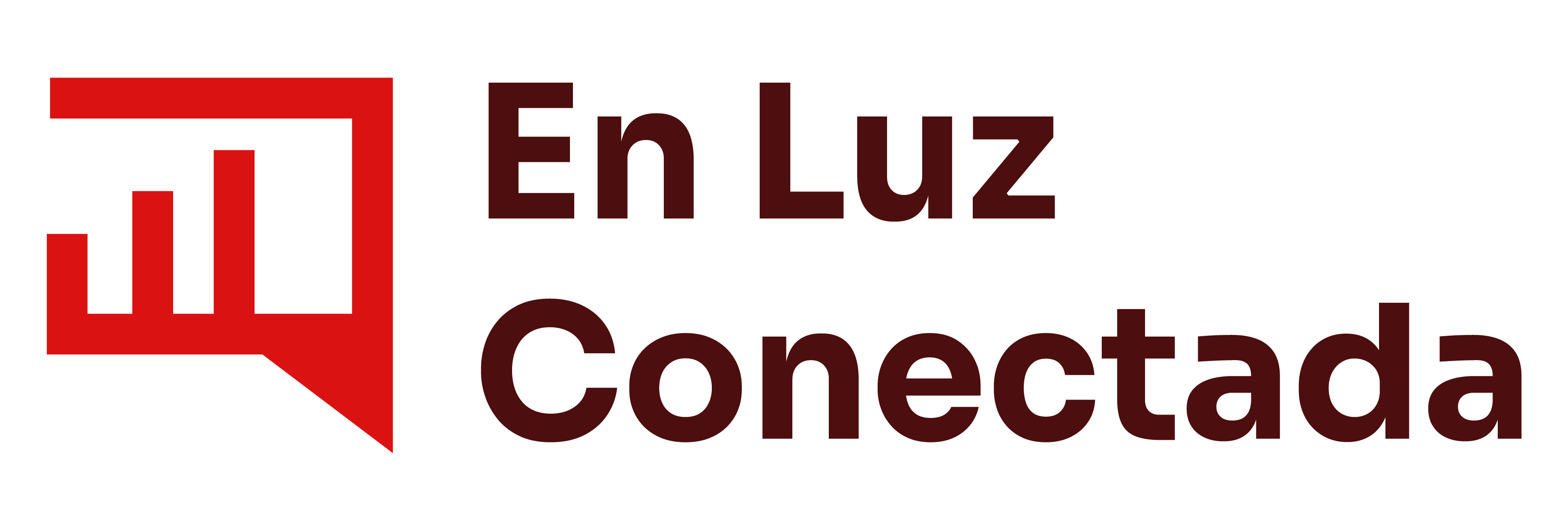In a world where the need for loans is becoming increasingly common, the importance of having a good credit history cannot be underestimated. Before applying for any type of loan, whether to buy a car, make a dream come true or renovate your home, the quality of your credit plays a crucial role in the release and conditions you will receive. Improving your credit score isn’t just a matter of numbers; it’s about building a healthy financial foundation and being prepared for the opportunities that life offers. In this comprehensive guide, we’ll explore the essential steps you can take to optimize your credit score. Whether you’re starting your financial journey or looking to recover from previous challenges, there are always actions you can take to strengthen your credit profile. Get ready to transform your relationship with credit and increase your chances of getting the best offers when it comes time to apply for a loan.
Why It’s Important to Improve Your Credit Before Borrowing:
Before applying for a loan, improving your credit should not be underestimated. A strong credit history is one of the most influential factors in a lender’s decision, as it reflects your ability to repay and manage finances responsibly. When you have a high credit score, not only do you increase your chances of approval, but you also become eligible for more favorable terms, such as lower interest rates. This can result in significant savings over the life of the loan, making credit improvement a crucial step in preparing for financing.
Furthermore, good credit provides greater flexibility when it comes to loan amounts and contract terms. Lenders are more willing to offer attractive rates and payment options that align with your budget when your credit is solid. On the other hand, a low credit score can lead to less favorable conditions or even difficulty finding a lender willing to approve your request. Therefore, taking the time to improve your credit before seeking a loan can make a significant difference in your financial situation.
Finally, improving your credit is not just beneficial in the short term but also an investment in your long-term financial future. A good credit score can open doors to larger loans, such as car or home purchases, and make it easier to get credit cards with higher limits and better benefits. By working to build and maintain a healthy credit profile, you are investing in your financial well-being and preparing for opportunities that may arise throughout your life.
Understand Your Current Financial Situation and How It Affects Your Credit:
Understanding your current financial situation is crucial to grasp how it can impact your credit. Many people underestimate the importance of evaluating their finances, thinking this process is only for those in debt or facing difficulties. However, having a clear view of your income, expenses, and investments is essential to ensure good financial health and maximize your chances of obtaining favorable credit. Proper control not only provides security but also allows you to identify improvement opportunities and potential adjustments to your budget.
- Payment History: If you don’t have clarity about your financial situation, you might end up missing payments, which harms your credit reputation. It’s also important to understand the ratio between your income and debt, as financial institutions often assess this proportion when reviewing credit applications. The lower the percentage of income committed to debt, the more trustworthy you will appear to creditors. Having an up-to-date and realistic overview of your financial situation helps maintain this balance.
- Credit Utilization: Often, excessive use of credit cards or loans can lead to a misjudgment of your repayment capacity. By knowing your financial situation, you can avoid unnecessary spending and better manage your credit limit. This proactive management not only improves your credit score but also paves the way for better conditions in future financing, such as lower interest rates and more favorable terms.
- A good understanding of your personal finances allows you to set long-term financial goals: Whether it’s buying a house, financing a car, or starting a business, knowing your financial health is the first step toward any achievement. The decisions you make today about savings and investment will directly impact your credit capacity tomorrow. Therefore, take some time to assess your current financial situation and make it a priority in your life. This practice not only protects your credit but also opens doors to more advantageous financial realities.
Practical Tips to Effectively Increase Your Credit Score:
Having a good credit score is essential for securing better terms when applying for loans, financing, and even renting properties. A high credit score shows creditors that you are a responsible borrower, which can result in lower interest rates and more flexible terms. Therefore, adopting some simple and effective practices can help increase your credit score over time.
Pay Your Bills On Time
- Timeliness in payments is one of the most impactful factors in determining your credit score. Try organizing a payment schedule or setting reminders on your phone to avoid late payments and potential fines. Also, consider automating some payments, especially for fixed bills such as water, electricity, and internet. By maintaining a good payment practice, you’ll not only protect your score but also save money.
Reduce the Use of Your Credit Limit
- Experts recommend that you use no more than 30% of your total credit limit on credit cards. If your debt is above this percentage, it might be a good idea to pay it down or request a credit limit increase, as long as you maintain spending discipline. Additionally, diversifying the types of credit you have (such as personal loans, credit lines, and cards ) can also positively contribute to your score, provided you manage each of them well.
Regularly Review Your Credit Report for Inconsistencies or Errors
- Finally, it is essential to regularly review your credit report to check for inconsistencies or errors that may be affecting your score. You have the right to request a copy of your credit report annually, and if you find incorrect information, you should contact the responsible institution to make the necessary corrections. By adopting these practices, you’ll be on the right track to achieving a healthier credit score, opening the door to better financial opportunities in the future.
Understand How Credit Scores Work and How to Improve Them:
A credit score is a crucial tool used by financial institutions to assess an individual’s ability to meet their financial obligations. Ranging from 0 to 1000, this score is calculated based on various factors in a consumer’s credit history, such as payment history, the amount of existing debt, the length of the relationship with financial institutions, and the type of credit used. A higher score indicates to lenders that the individual is a reliable borrower, which makes it easier to approve loans and financing with more favorable terms, such as lower interest rates.
Improving your credit score is a goal many consumers have, and there are several practices that can help achieve this. First, it is essential to keep bills up to date, paying all invoices and debts on time. Late payments and defaults tarnish the credit history and negatively affect the score. Additionally, it’s advisable to maintain a balance in credit usage, avoiding exceeding 30% of your credit card limit, as this is also seen as a risk indicator by institutions.
Another important aspect is regularly reviewing your credit report. This practice helps identify any errors or incorrect records that could be negatively impacting your score. If inconsistencies are found, they can be contested with the relevant authorities. Finally, diversifying credit types can contribute positively, as long as it is done responsibly. A history of various credits, such as a credit card and a loan, shows a healthy management of different kinds of debt. With an understanding of how credit scores work and the factors that influence them, consumers can make more informed decisions about their credit use, working toward improving their score and ultimately securing a more financially stable future.
Reduce Your Debt and Increase Your Approval Chances:
Reducing your debt is a crucial step in increasing your chances of approval for loans and financing. When you show a healthy financial history, demonstrating control and responsibility in managing your finances, financial institutions tend to view you as a reliable customer. Therefore, it’s essential to have a clear picture of your current obligations. Start by making a list of all your debts, including amounts, due dates, and interest rates. This will give you a better view of your situation and help you create an effective repayment plan.
- Prioritize High-Interest Debts: The well-known “snowball” method, where you pay off smaller debts first, can offer motivation, but in the long run, the focus should be on those debts that drain your finances more quickly. Additionally, consider negotiating better terms with your creditors. Often, institutions are willing to offer reduced interest rates or more flexible terms, which can provide significant relief to your budget.
- Building a Good Relationship with Financial Institutions: Keep your accounts up to date, avoid late payments, and always try to make a payment higher than the minimum on your invoices. Your dedication to tracking your finances and making progress in reducing your debt will also reflect positively on your credit score. With a good score, your chances of approval for new lines of credit increase significantly, making it easier to achieve new goals, such as purchasing a car or renovating your home.
- Consider Creating an Emergency Fund: While it may seem counterintuitive during a debt repayment process, having a fund for unforeseen expenses can prevent you from incurring new debt. This way, you not only reduce your current debts but also build a stronger financial foundation for the future. Remember, discipline and planning are your best allies in this journey toward a more balanced and secure financial life.
Maintaining a Good Payment History: Key Strategies
Maintaining a good payment history is crucial for ensuring financial health and credibility in the market. A positive history not only increases the chances of securing credit on favorable terms but also helps build strong relationships with suppliers and financial institutions. To achieve this, it’s essential to implement strategies that help organize and monitor payments.
Create a Detailed Budget
- One of the most effective approaches is to create a detailed budget that allows you to track income and expenses clearly. This includes recording all due dates and the amounts of payments to be made. Using financial apps can be an excellent option, as these tools help manage accounts and send reminders when due dates are approaching, preventing delays that could harm your history.
Prioritize On-Time Payments
- Another important strategy is to prioritize on-time payments, especially those that directly impact your credit score, such as loans and credit cards. In case of financial difficulties, it is advisable to contact creditors to renegotiate deadlines or amounts to avoid default. Transparency and communication are vital to maintaining a good relationship with institutions and avoiding negative marks.
Regularly Review Your Payment History
- Finally, it’s important to regularly review your payment history, checking for errors or inconsistencies in credit reports. If you find incorrect information, it is essential to dispute it as soon as possible. With these practices and solid financial planning, you can maintain a positive payment history, opening doors for future opportunities and providing peace of mind in your personal finances.
The Impact of Credit Inquiries and How to Minimize Them:
Credit inquiries are an important aspect of the financial system, reflecting an individual’s credit history and their ability to manage debt. Whenever a creditor checks someone’s credit history, an inquiry is recorded, and this process can have significant implications for the consumer’s financial health. Each inquiry can impact the credit profile, influencing future creditors’ decisions regarding credit approval, interest rates, and available limits.
One of the major challenges with credit inquiries is that frequent checks in a short period can lower an individual’s credit score. Multiple inquiries may signal to creditors that the person is experiencing financial difficulties or is seeking excessive credit. To minimize these impacts, it’s essential to understand the consequences of credit inquiries and manage the way credit is applied for. A good alternative is to apply for a pre-approval check, which allows consumers to assess their chances of approval without directly affecting their credit score.
Additionally, limiting the number of credit applications within a given timeframe is a prudent strategy. Instead of applying for multiple credits simultaneously, it is better to plan ahead and carefully consider which options truly meet financial needs. Thoughtful planning not only improves the chances of easier approval but also reduces inquiries and, consequently, the negative impact on the credit score. Regularly monitoring your credit history is also an excellent strategy. By staying informed about how inquiries affect your score and addressing any errors, consumers can make more informed and secure decisions. With solid credit management practices, it’s possible to ensure that credit usage is beneficial, rather than harmful, to future financial stability.
Using Credit in a Smart and Responsible Way:
Using credit in a smart and responsible way is a key step in ensuring long-term financial health. Many people see credit as a quick solution to finance dreams, such as buying a new car or going on that long-awaited trip. However, it is important to remember that credit should be a tool that serves your financial life, not a burden. To achieve this, you need a strict plan that includes analyzing your repayment capacity and setting priorities when opting for financing.
- It’s essential to always research the best available credit terms on the market: this involves comparing interest rates, deadlines, and additional fees, seeking the option with the lowest total cost. Additionally, understanding your credit history can make it easier to negotiate better terms, as financial institutions tend to offer better deals to those with a good profile. Remember that while credit can help you achieve goals, you must be clear on how these debts will impact your monthly budget.
- Avoid accumulating debt: this can happen, for example, when credit cards are used without proper control. Ideally, purchases should only be made when you are sure you can pay them off by the due date, avoiding high-interest rates and future complications. A good habit is to keep a detailed record of your expenses, which helps make informed decisions about credit use. The goal is always to maintain a balance between what you earn and what you spend, protecting your assets and financial well-being.
- Learning to use credit responsibly brings benefits: building a good credit history is crucial for achieving new goals, such as buying a home or investing in opportunities that can generate financial returns. By adopting a cautious approach to credit, you not only avoid financial problems but also set yourself on a solid path toward stability and financial growth.
Tools and Resources to Monitor and Improve Your Credit:
Having a good credit history is essential for those looking to make major purchases, such as a house or a car, or even to secure better rates on credit cards and loans. To achieve this, it is important to use tools and resources that can help monitor and, at the same time, improve your credit score. Fortunately, today there are many options available, both free and paid, that can assist in this task.
Credit Monitoring Services
- One of the most useful tools are credit monitoring services, which allow you to regularly track your credit score and receive alerts about any changes in your credit report. These services provide detailed analysis and reports that help identify areas requiring attention, such as overdue payments or high credit usage. Additionally, many of these services offer personalized tips on how to improve your financial situation, making it easier to understand the next steps to take. Check your credit today with Experian and stay on top of your financial health!
Financial Management Apps
- These apps help you track your income and expenses, aiding in the creation of a budget that aligns with your financial limits. With better control over your spending, you can avoid unnecessary debt and, consequently, improve your credit score. Additionally, many of these apps offer planning tools for the future, such as simulations of how small changes in your financial behavior can impact your score.
Financial Education
- Books, online courses, and podcasts have become increasingly popular and can provide valuable information on how to manage your finances and understand the credit system. Investing time in learning more about credit and personal finance is one of the most effective steps you can take to improve your credit score in the long run. With the right tools and a commitment to financial education, you can not only monitor your credit but also turn it into an ally in your financial life.
Conclusion:
Improving your credit before applying for a loan is essential to increase your chances of approval and secure better loan terms. By checking your credit score regularly, paying off outstanding debts, reducing credit card balances, and addressing any discrepancies in your credit report, you demonstrate financial responsibility. Additionally, avoiding new credit applications and maintaining a steady income will further enhance your creditworthiness. Taking these proactive steps not only boosts your credit score but also sets the foundation for a healthier financial future, ensuring you are well-prepared when it’s time to apply for a loan.





